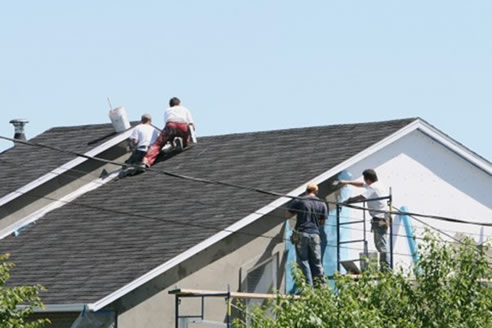Energy in Manufacturing Lightweight Expanded Polystyrene Sheets

Founded in 1982, Foamex specialises in the manufacture and distribution of lightweight expanded polystyrene sheets for the building and construction industry. The Australian-owned and operated company has garnered positive feedback for their flagship products, delivering outstanding insulation services while conserving energy in the long run.
Environmental Sustainability in the Industry
As the road to sustainability continues, more and more construction projects are lessening the use of conventional methods in preference to more environmentally conscious options. New and up-and-coming trends in the industry are leaning towards energy conservation, in terms of both building materials and building practices. The long-term goal is to promote a better quality of living for future generations through maximising the use of various forms of energy at the start, in the process, and during maintenance of building developments. For insulation, Styroboard™ lightweight expanded polystyrene sheets by Foamex is the ideal, eco-friendly choice.
Manufacturing Expanded Polystyrene Sheets
Foamex has developed a revolutionary manufacturing process for Styroboard™ expanded polystyrene sheets. During the pre-expansion stage, compact resin beads are steam-heated in special machines called pre-expanders at temperatures of 80°C to 100°C. The raw materials will expand up to 40 times their original volume, turning into beads with small closed cells that hold air inside. After a maturing period, the cellular beads are transported to moulds for a final steaming that binds them together. The end-result are lightweight expanded polystyrene sheets that are heavily packed with insulation properties.

Remarkable Reductions
As compared to other insulating materials, Styroboard™ lightweight expanded polystyrene sheets are manufactured using a significantly lower amount of crude oil at 0 to 1% on the global scale. The small value goes against the grain in thermal energy savings, in which the material can achieve a whopping 200 times its resource. As calculated over a 50-year period, each kilogramme of oil used in manufacturing Styroboard™ saves up to 150 kg of oil used for heating residential and commercial properties. In addition, the manufacturing process uses pentane as an alternative to chlorofluorocarbons (CFCs) and hydrochlorofluorocarbons (HCFCs), notorious ozone depleters that contribute to the greenhouse phenomenon.
Life Cycle of Expanded Polystyrene Sheets
A life cycle analysis is a technique used to quantify the total impact of a product, from its production, distribution, use to recycling, treatment or disposal. The life cycle analysis of Styroboard™ demonstrates lesser impact on the environment, when stacked up against competitive materials in the market.
As packaging materials, Styroboard™ has an energy consumption of 1, while wood, paper and other common materials register at 1.3. For shaped or moulded packaging applications, the energy consumption ratio of Styroboard™ to pulp and fibreboard is 1:2.3-3.8. Furthermore, using lightweight expanded polystyrene sheets for packaging will cut back on fuel consumption up to 39% during transport. Easily cut and shaped for various recycling applications, Styroboard™ will also reduce landfill waste.
Contact Foamex for more details on Styroboard™ lightweight expanded polystyrene sheets and the environment. Call 02 9773 1655 or visit www.foamex.com.au now.

|





 Waffle Pod Void Formers - Diamond Pod by
Waffle Pod Void Formers - Diamond Pod by Polystyrene Foam Blocks for Cool Rooms
Polystyrene Foam Blocks for Cool Rooms Benefits of Recycling Polystyrene Foam
Benefits of Recycling Polystyrene Foam Oversized EPS Foam for Event Props by
Oversized EPS Foam for Event Props by Versatile Polystyrene Sheets Melbourne
Versatile Polystyrene Sheets Melbourne Lightweight Foam Blocks for Sustainable
Lightweight Foam Blocks for Sustainable Polystyrene Underfloor Insulation Sydney
Polystyrene Underfloor Insulation Sydney Robust Polystyrene Blocks for Tunnel
Robust Polystyrene Blocks for Tunnel XPS Slab Edge Insulation for Residential
XPS Slab Edge Insulation for Residential Foam Insulation to Lower Your Carbon
Foam Insulation to Lower Your Carbon Reduce Energy Bills with Rigid
Reduce Energy Bills with Rigid Polystyrene Waste Disposal Guidelines by
Polystyrene Waste Disposal Guidelines by EPS Foam Insulation for Garage Doors
EPS Foam Insulation for Garage Doors Superior Underfloor Insulation for Wood
Superior Underfloor Insulation for Wood XPS Insulation for Energy Efficient
XPS Insulation for Energy Efficient Extruded Polystyrene Foam for
Extruded Polystyrene Foam for Trust Foamex for Polystyrene Foam Block
Trust Foamex for Polystyrene Foam Block Waffle Pod Slabs for Sustainable Homes
Waffle Pod Slabs for Sustainable Homes Polystyrene Foam Packaging for Shipping
Polystyrene Foam Packaging for Shipping Foam Insulation for Draught-free Home by
Foam Insulation for Draught-free Home by
